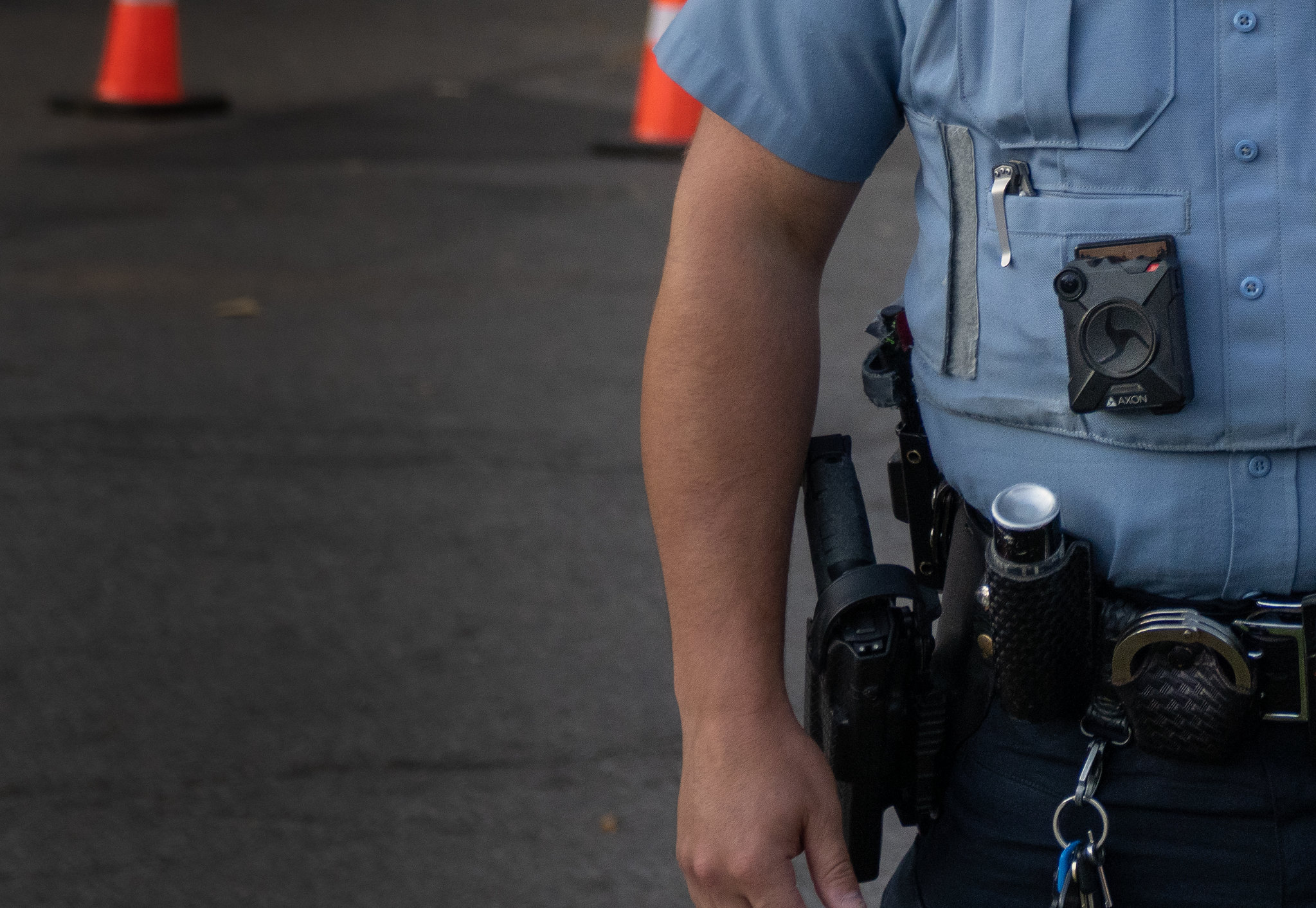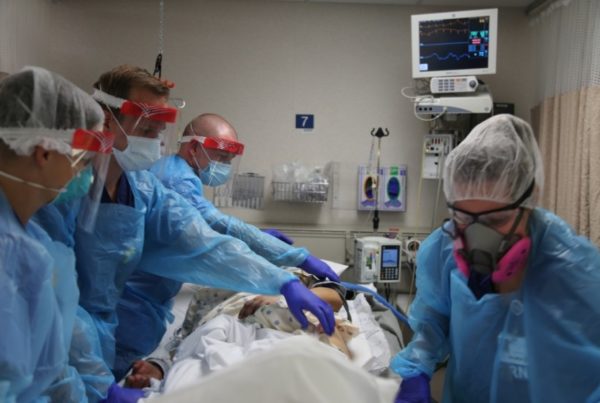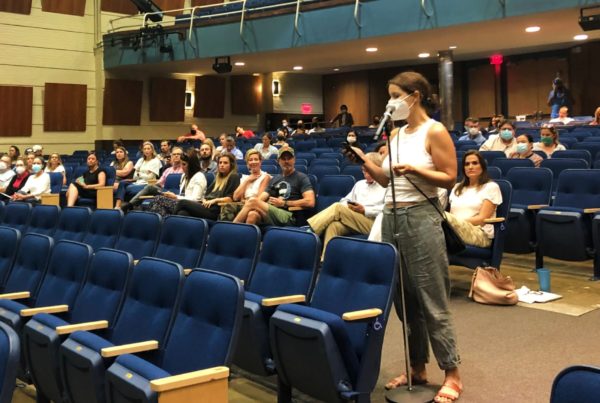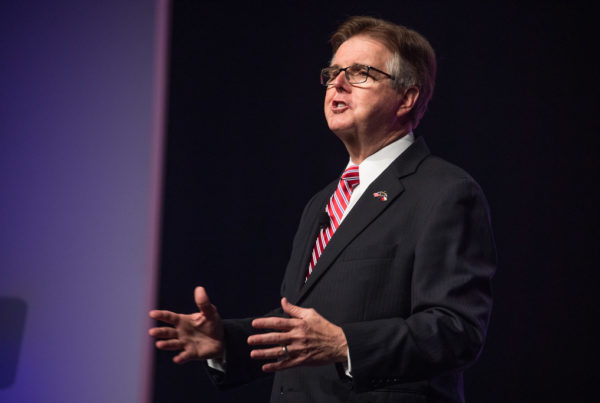Hundreds of new laws go into effect today, many of them unknown to most Texans.
University of Houston political science professor Brandon Rottinghaus joined Texas Standard to talk about a handful of laws that might not have been in the spotlight during the recent regular legislative session, but could still have big impacts.
Police Body Cameras
Law enforcement officers who wear body cameras as part of their normal job duties are now required to have their cameras turned on for the duration of an investigation. House Bill 929, also known as the Botham Jean Act, came about after Jean, a Dallas man, was murdered by off-duty police officer Amber Guyger in his home.
Police Chokeholds
Chokeholds by law enforcement officers are now banned in Texas. A chokehold is when an officer puts pressure on a person’s neck, throat or torso in a way that might impede breathing of bloodflow. Senate Bill 69 is in response to the death of George Floyd, who was murdered from being held in a chokehold for over 9 minutes by former Minneapolis police officer Derek Chauvin.
Rottinghaus says both the chokehold and body camera laws had bipartisan support, despite some tough negotiations during the regular legislative session. A contingent of Texas Democrats and Republicans are pushing for “fundamental change” in policing and incarceration, he says.
RELATED: More Than 650 Texas Laws Go Into Effect Sept. 1. Here Are 13 You Should Know.
State Employee Retirement Plan
New state employees will be automatically enrolled in a 401k-style retirement plan. Rottinghaus says it’s an effort by the Employer Retirement System of Texas, or ERS, to shift away from its traditional pension system that’s in financial trouble.
“There are unfunded liabilities in this system at about $14 billion or $15 billion. So, effectively, they cannot pay their bills and the benefits when they come due,” he said.
The retirement plan will only be mandatory for new employees, and not for the almost 360,000 existing ones. It doesn’t apply to state employees in Texas’ Teacher Retirement System; that’s a different pension plan. The new ERS plan also won’t be as generous as the pension, Rottinghaus says.
Sunday Alcohol Sales
Grocery and convenience stores will now be able to sell beer and wine on Sundays starting at 10 a.m. instead of noon. Liquor stores are still required to stay closed on Sundays.
Alcohol To Go
Texas is also relaxing its laws so that food-and-drink establishments can now sell alcohol for takeout and delivery. Rottinghaus says the pandemic was a catalyst for easing restrictions, after the state temporarily allowed alcohol-to-go during stay-at-home orders. Some of the shift is cultural, but some of it is also related to changing dynamics in the alcohol business.
“There is an odd hierarchy of how liquor and beer is distributed and how it’s manufactured. So there’s been a long-time kind of friction between these different levels, between producers and distributors. So this is a movement towards, I think, relaxing some of those [restrictions],” he said.
‘Star-Spangled Banner’ At Sporting Events
All professional sports teams in Texas that have contracts with the state are now required to play the national anthem before sporting events or risk losing state funding. Rottinghaus says more than anything, the law is symbolic of the cultural and political divide shaping the state and the Legislature.
“This is really the pinnacle of the culture wars in Texas,” he said.
He says the law resonates especially among Republican lawmakers’ core political base, but hasn’t drawn wider interest.
Legislative Pay
This one isn’t technically a new law, but Gov. Greg Abbott did veto an item in the state budget that pays for legislative operations in response to lawmakers not passing voting legislation during the regular legislative session. That money included pay for legislative staff and lawmakers. Pay was supposed to stop on Sept. 1, but the Legislature extended pay until Oct. 1.
Still, Rottinghaus says the extension doesn’t solve the underlying problem of Abbott’s veto. The Texas Supreme Court puts that responsibility on the Legislature to resolve the matter with the governor. But he says it’s one that’s still “highly contentious” among some lawmakers, particularly some Democrats.
“You’ve got the members revolting in some way, saying that you need to have that the Legislature stand up for itself, independent of all of the politics of this, [that] the Legislature needs to exist; it’s part of the structure of the Constitution and critical to the separation of powers,” Rottinghaus said.













